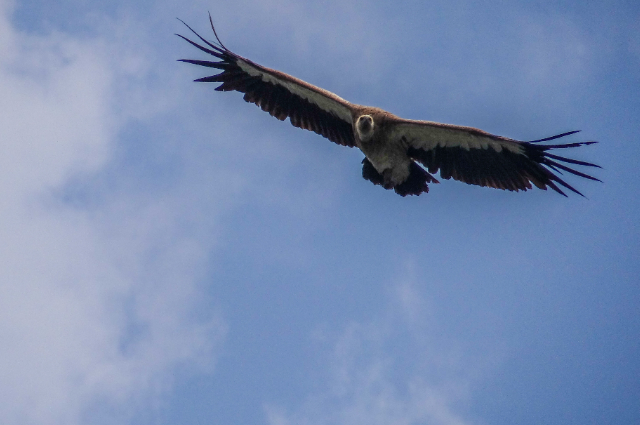
Image by Rox-zee - Wikimedia
The Bombay Natural History Society (BNHS) researchers have successfully recorded the first instance of successful captive breeding of the Himalayan vulture (Gyps Himalayensis) in India at the Assam State Zoo, Guwahati.
Except in France, nowhere has this species been bred in captivity. Kind of the second instance in the world and the first time for India where Himalayan vultures have been bred successfully in captivity.
Categorized as 'Near Threatened' on the International Union for Conservation of Nature (IUCN) Red List of threatened species.
The Himalayan vulture is a common winter migrant to the plains of India and a resident of the inner Himalayas.
Research on successful breeding has been published in a paper titled, 'Breeding of Himalayan Vulture Gyps' in the Journal of Threatened Taxa.
Successful hatching was noted in 2022 itself and the nestling was accordingly shifted. Initially, the nestling was kept in the brooder made up of a plastic box with a mat for the grip. The temperature was maintained around 30-35°C with a lamp and it was monitored using a thermo-hygrometer. The nestling was provided with sufficient space to move towards and away from the heat source to ensure safety and protection.
Along with the housing for nestling, food, feeding hours, and the growth and colouration of nestling were observed.
Breeding it in Guwahati was quite difficult as this species is home to the snow-clad mountainous regions. But since these birds were kept for a long in zoos and hence acclimatized themselves to this tropical environment.
Assam has itself seen many casualties of Himalayan vultures and this experiment shows that there is hope for increasing their population through artificial breeding.
BNHS is one of India's oldest and premier scientific organizations, working for nature conservation since 1883. It's objective is to protect Nature through scientific research, conservation files, and education about scientific programmes, etc.
. . .
Reference:
- m.timesofindia.com
